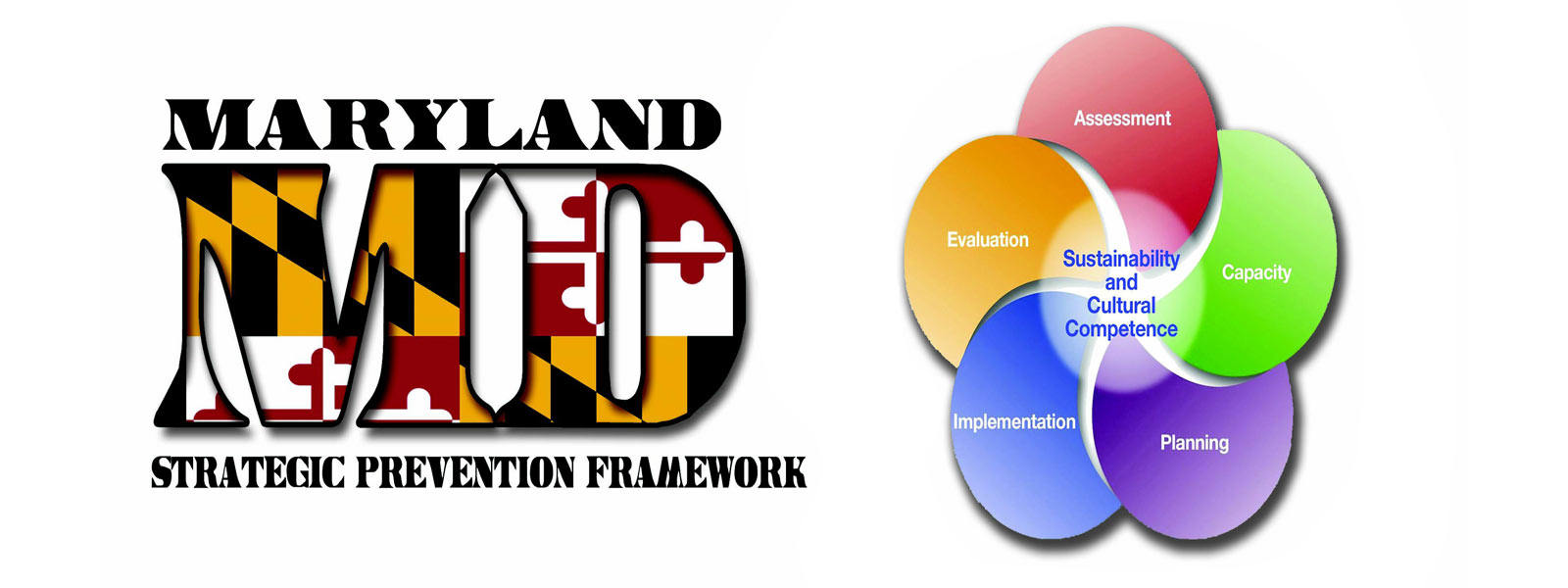Maryland Strategic Prevention Framework (MSPF)
The MSPF Process is a five-step process:
- Community Needs Assessment: A systematic gathering and analysis of quantitative and qualitative data about the community served for the purpose of identifying and addressing alcohol problems.
- Capacity: Types and levels of resources within a community and the community’s readiness to engage in and support prevention efforts.
- Strategic Planning: A written logic model that examines substance-related consequences, intervening variables and contributing factors that result in the selection of evidence-based strategies, programs, policies and practices.
- Implementation: The performance of evidence-based strategies, programs, policies and practices in the local community.
- Evaluation: Preparation and implementation of a local evaluation plan of evidence-based strategies put into place in the community.
The MSPF Implementation Principles are:
- Systems-based approach
- Capacity building/culturally competent infrastructure
- Population-based outcomes
- Evidence-based approach to program implementation
- Community-level change
- Populations across the lifespan
The MSPF Coalition Priorities:
- To reduce the number of Maryland youth under 21 reporting past month alcohol use;
- To reduce the number of youth 18 through 25 years old reporting past month binge drinking; and
- To reduce prescription drug and heroin use among all ages
Strategies used:
- Educate communities about drugs and alcohol and how these substances impact youth and the community
- Promote prevention events, evidence-based articles, and informational material via social media and to local outlets
- Host monthly meetings in each local community to discuss volunteer opportunities and current outreach efforts
- Connect community members to organizations committed to substance misuse prevention and treatment
- Attend local events in the community to raise awareness about substance misuse prevention

